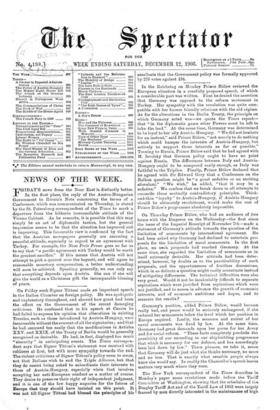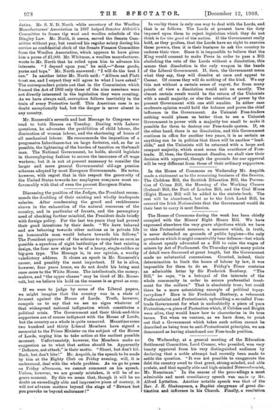The New York correspondent of the Times describes in Monday's
paper some revelations made before the Tariff Committee at Washington, showing that the schedules of the Dingley Tariff Act and of the Tariff Law of 1883 were largely framed by men directly interested in the maintenance of high
duties. Mr. S. N. D. North while secretary of the Woollen Manufacturers' Association in 1897 helped Senator Aldrich's Committee to frame th,t3 wool and woollen schedule of the Dingley Law. Mr. North, it seems, served the Senate Com- mittee without pay, but received his regular salary during his service as confidential clerk of the Senate Finance Committee from the Woollen Association, which appears to have given him a purse of 21,000. Mr. Whitman, a woollen manufacturer, wrote to Mr. North that he relied upon him to advance his interests. " I depend upon you," he said,—" dress goods, yarns and tops." Mr. North answered: "I will do the beat I can." In another letter Mr. North said: "Allison and Platt trust me, and I expect they will agree to what I have asked." The correspondent points out that in the Commission which framed the Act of 1883 only three of the nine members were not directly interested in the legislation they were creating. As we have always said, corruption follows inevitably in the train of every Protective tariff. This American case is no doubt exceptionally bad, but the danger is never absent in any country.































































 Previous page
Previous page